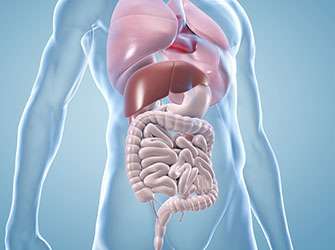Potential new therapeutic approach found for liver cell cancer

In a recent study, scientists from the Institute for Cancer Research at MedUni Vienna have shown that the growth factor receptor FGFR3 increases the rate of growth and aggressiveness of hepatocellular carcinomas (liver cell cancer). Inhibition of this receptor could be a new and effective way of treating patients. The paper has now been published in the top-ranking journal, Hepatology.
Hepatocellular carcinoma (or HCC) is the commonest form of liver cancer and is regarded as one of the most aggressive tumours in the world. Approximately 6% of all cancers in men and around 3% of all cancers in women are hepatocellular carcinomas. It is one of the most frequent causes of death from cancer. However, until now treatment options have been limited.
Growth factors trigger cell growth
Fibroblast Growth Factor Receptors (FGFR) are proteins found on the surface of cells, which, amongst other things, control growth in organs and tissue. If a growth factor (likewise a protein) binds to one of these receptors, the cell receives the command to divide. Currently we know of 4 members of this growth factor receptor family (FGFR1 to FGFR4) and 23 growth factors. We know that, in certain types of cancer, some of these receptors are misregulated. However their role in the development and progression of the disease is insufficiently researched.
FGFR3 upregulated in 50% of hepatocellular carcinomas
A recent study conducted by the research group led by Bettina Grasl-Kraupp at the Institute for Cancer Research (Director Maria Sibilia) of MedUni Vienna has now shown that both isoforms of FGFR3 (FGFR3-IIIb and FGFR3-IIIc) play a role in the growth and progression of hepatocellular carcinoma. The study involved analysing cell lines and tumour tissue from HCC patients and conducting mouse model studies.
Jakob Paur, lead author of this paper and member of the Comprehensive Cancer Center (CCC) of MedUni Vienna and Vienna General Hospital says: "The results showed that, in 50% of the HCC cases, there were noticeably raised levels of at least one of the two FGFR3 isoforms on the surface of the tumour cells. The greater the concentration of the receptor in the tumour tissue, the larger the primary tumour and the greater the probability of finding recurrences. When both FGFR3 isoforms in tumour cell lines were downregulated, tumour growth declined dramatically and the cells became much less aggressive. This was very clearly observed, not only in the cell culture but also in a mouse model."
The study findings therefore suggest that blocking FGFR3 could be a promising approach for treating hepatocellular carcinoma.
More information: "Fibroblast growth factor receptor 3 isoforms: novel therapeutic targets for hepatocellular carcinoma?" Hepatology, www.ncbi.nlm.nih.gov/pubmed/26235436
















